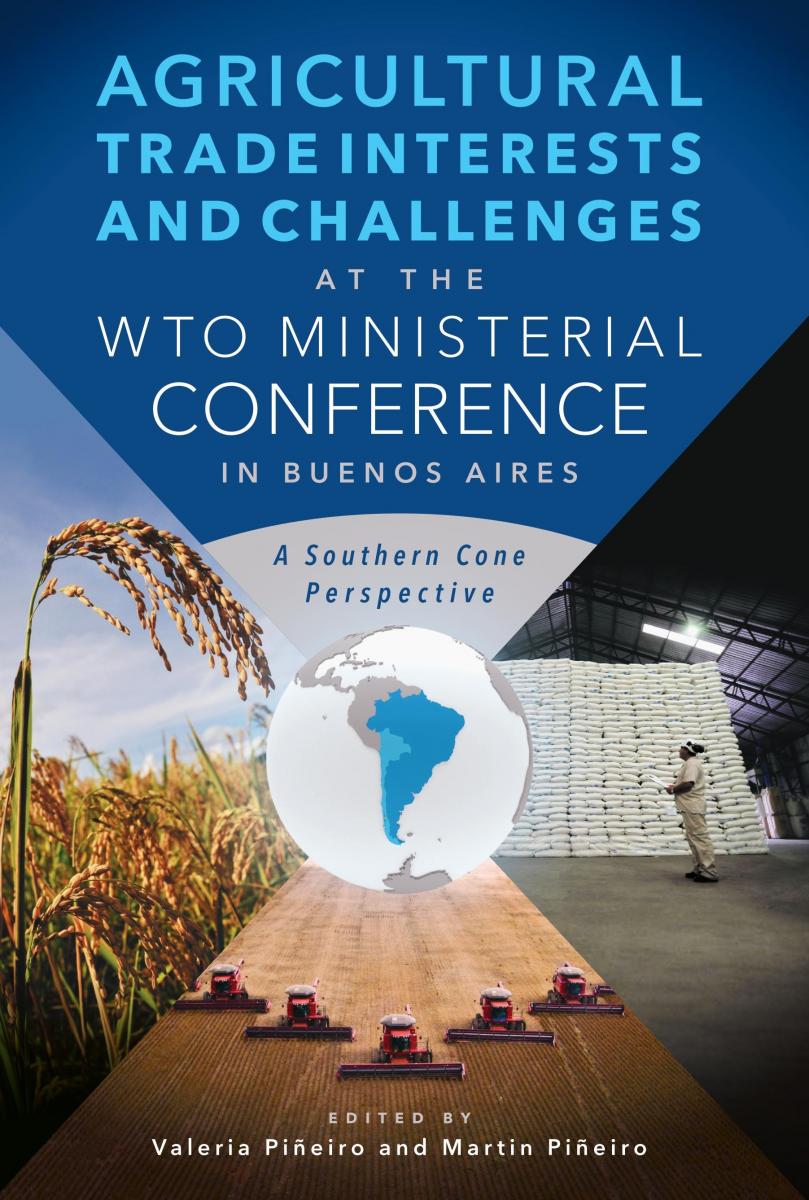A new book, prepared by high-level entities, was presented within the framework of the WTO Ministerial meeting, held in Buenos Aires in December.

Buenos Aires (IICA). Through the release of a new book, six renowned entities seek to share ideas to advance the complex issues that impact agricultural trade, and to provide information on their importance for the economic and social progress of the countries of the Southern Cone of the Americas.
The publication was presented within the framework of the World Trade Organization Ministerial meeting, that took place in Buenos Aires, Argentina, from December 10th to 13th. In this assembly, one of the most important in the world on this matter, the situation and future of international trade was discussed.
The document, entitled “Agricultural trade interests and challenges at the WTO Ministerial Conference in Buenos Aires: A Southern Cone perspective”, is the product of joint efforts between the Inter-American Institute for Cooperation on Agriculture (IICA), Buenos Aires Grain Exchange, Institute for International Agricultural Negotiations (INAI) Foundation, Group of Producing Countries from the Southern Cone (GPS), International Centre for Trade and Sustainable Development (ICTSD), and International Food Policy Research Institute (IFPRI).
“This book comes at a time of crucial importance for the future of agricultural trade around the world: a time when there is need to create new paradigms to preserve what has been gained, and a time to provide solutions to those challenges that remain unresolved”, says the IICA Representative in the United States and Head of the Center for Strategic Analysis for Agriculture (CAESPA), Miguel García-Winder.
The editors of the book, Valeria Piñeiro and Martin Piñeiro, typified the international environment in which net food-exporting countries will have to function: increased demand that has resulted in higher prices; more players from the South in agricultural trade; food trade concentrated among a few large net importers and net exporters; and environmental concerns related to trade.
“The WTO and its Member countries need to look boldly into the future and commit to a dialogue that will serve as the basis for a stronger role for international trade in the context of the complex and challenging issues that lie ahead. In building this dialogue, it is important to recognize the links between the XI WTO Ministerial Meeting and the G20 process,” state the editors in the document.
The book can be accessed for free in this link: http://repositorio.iica.int/bitstream/11324/6253/1/BVE17129451i.pdf
More information:
Miguel García-Winder, IICA Representative in the United States
Valeria Piñeiro, Economist in the Markets, Trade, and Institutions Division at the International Food Policy Research Institute











